
UniFilter-96 GF/C PEI Coated Microplates, Case of 50
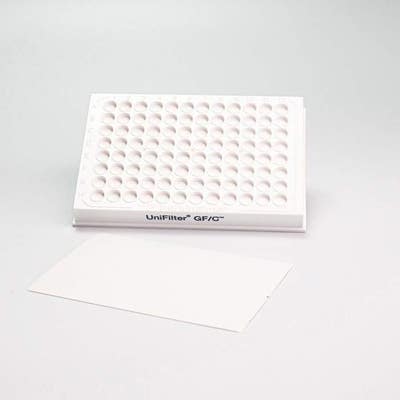
UniFilter-96 GF/C PEI Coated Microplates, Case of 50
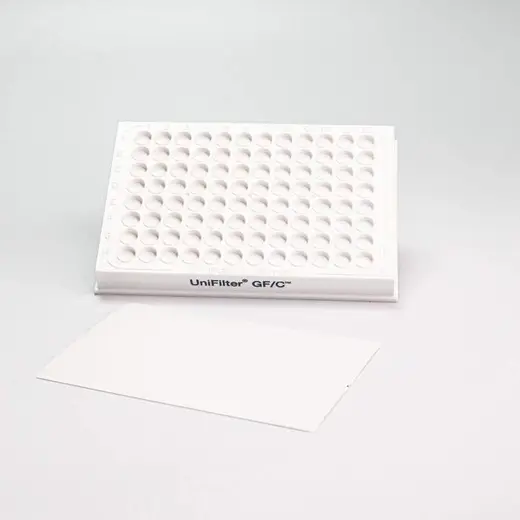

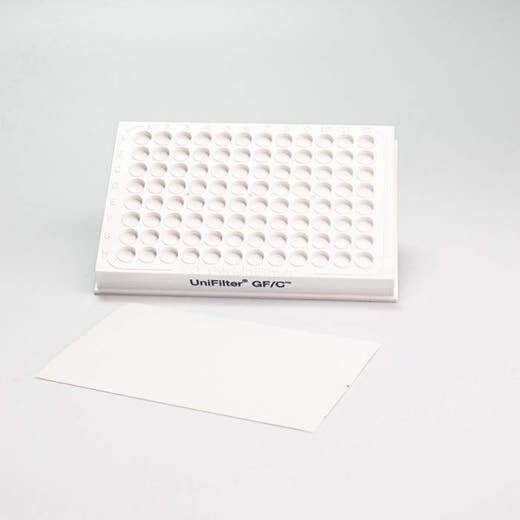

PEI-coated GF/C glass fiber filter-bottom 96-well microplate, for cell harvesting assays using a vacuum manifold. These plates are designed with a built-in glass fiber filter for receptor binding assays or cell harvesting using a manifold.
This product replaces part number 6005274.
| Feature | Specification |
|---|---|
| Surface Treatment | PEI |
| Color | White |
| Detection Modality |
Filtration Radiometric |
| Lids Included? | No |
| Material | SAN (Styrene AcryloNitrile) |
| Plate Format | 96 wells |
| Well Shape | GF/C Filter |
PEI-coated GF/C glass fiber filter-bottom 96-well microplate, for cell harvesting assays using a vacuum manifold. These plates are designed with a built-in glass fiber filter for receptor binding assays or cell harvesting using a manifold.
This product replaces part number 6005274.


UniFilter-96 GF/C PEI Coated Microplates, Case of 50


UniFilter-96 GF/C PEI Coated Microplates, Case of 50


Product information
Overview
UniFilter-96 PEI-coated GF/C, White 96-well SAN Microplate with 1.2 µm pore size GF/C filter. The GF/C UniFilter Microplates are made of a chemically resistant Styrene AcryloNitrile (SAN) resin, which is compatible with most liquid scintillation counting cocktails. SAN resin replaces microplates previously made with Barex® resin.
GF/C glass fiber filter-bottom 96-well microplate, for cell harvesting assays using a vacuum manifold. These plates are designed with a built-in glass fiber filter for receptor binding assays or cell harvesting using a manifold.
Polyethyleneimine (PEI) is a cationic polymer that can neutralize the negative charge of glass fiber filters (GF/C, GF/B). Treating GF/C and GF/B filter plates with polyethylenimine (PEI) is often used to minimize non-specific binding, particularly in ligand-binding assays. For some applications involving negatively-charged ligands (such as GTP binding assays), PEI coating could cause problems by creating a positively-charged surface that actually promotes non-specific binding to the filter, due to the negative charge on the ligand.
Specifications
| Color |
White
|
|---|---|
| Plate Format |
96 wells
|
| Well Shape |
GF/C Filter
|
| Application |
Radiometric
|
|---|---|
| Automation Compatible |
Yes
|
| Brand |
UniFilter
|
| Detection Modality |
Filtration
Radiometric
|
| Format |
Microplates
|
| Instrument Compatibility |
MicroBeta
|
| Lids Included? |
No
|
| Material |
SAN (Styrene AcryloNitrile)
|
| Shipping Conditions |
Shipped Ambient
|
| Surface Treatment |
PEI
|
| Unit Size |
case of 50
|
Resources
Are you looking for resources, click on the resource type to explore further.
Your specific applications deserve the best microplates!
For a researcher, the need to select the most suitable application...
Loading...


Recently viewed
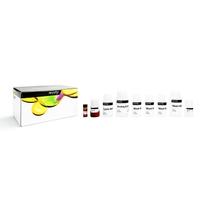
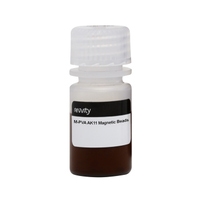
How can we help you?
We are here to answer your questions.






























